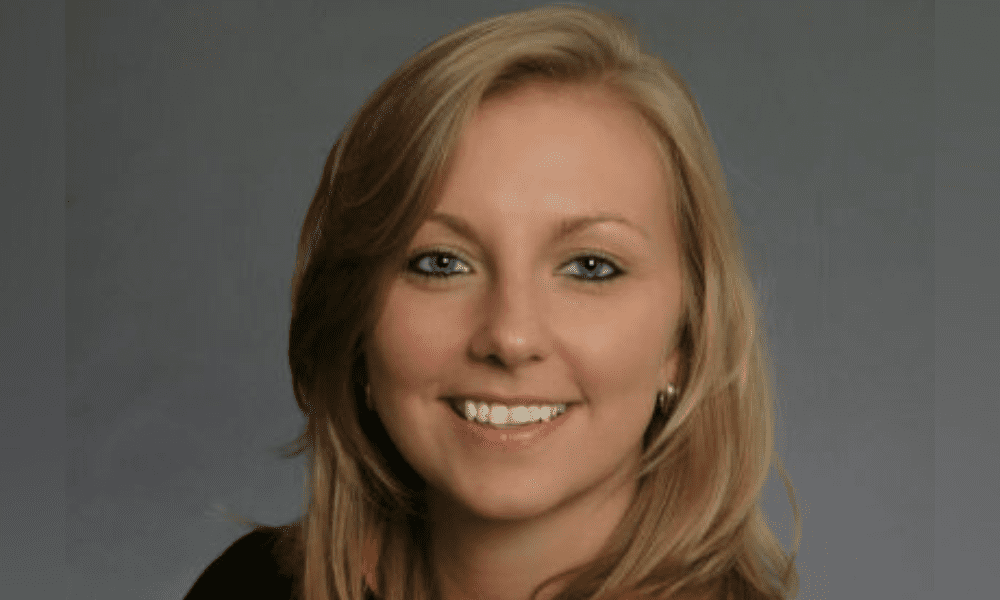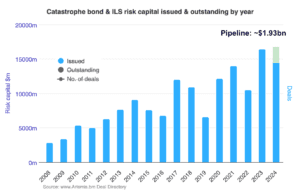"Are we going into a hard casualty market in reinsurance?"

“Are we going into a hard casualty market in reinsurance?” | Insurance Business New Zealand
Reinsurance
“Are we going into a hard casualty market in reinsurance?”
What’s happening across the casualty reinsurance landscape
Reinsurance
By
Mia Wallace
In a ‘Reinsurance Renewal Season’ briefing, senior leaders from Aon came together to discuss global market dynamics amid challenging market conditions. Mike Van Slooten, head of business intelligence, reinsurance at Aon, highlighted how insured losses from secondary perils are continuing at record levels, with 2024 on course to be $100 billion loss year, irrespective of what happens in the remainder of the Atlantic hurricane season.
On the casualty side, he said, litigation funding, adverse legal environments and emerging risks are creating significant uncertainty around ultimate loss costs. The question on the mind of the market and addressed by Amanda Lyons (pictured), global product leader, reinsurance, is “are we going into a hard casualty market in reinsurance?”
“We definitely don’t think the reinsurance market is hard per se,” she said. “There’s definitely not a shortage of capacity in the casualty reinsurance space. Yes, there are challenges from multiple angles. Think continued development from soft market years, increase in nuclear verdicts overlaid with continued legal system abuse.
“But that said, there are a lot of positive trends that we’re seeing on the primary side, and reinsurance capacity has been waiting on the sidelines for this change to start to happen. So on the primary side, clients have realized the focus on claims is incredibly important including, specifically, early intervention and renewed claim settlement strategies. Focus on loss trends and achieving rate in excess of that is absolutely paramount.”
How can reinsurers stay relevant?
Lyons noted that Aon’s commercial risk colleagues are projecting rate in Q3 to start picking up at an even faster pace which will build on what clients have already done around deductibles and limits. Critical to bear in mind, she said, is how reinsurers can continue to be relevant for clients.
For instance, one of the negative aspects that’s brought up in conversations quite regularly is around legal system abuse. There are certain things clients can do to lead to better results, but some of it is out of their hands. “So, we do want reinsurers and our reinsurer partners to work with us and our clients to help clients come up with strategies around that and really push legislation in a big way.”
Is there enough capacity in casualty reinsurance?
Looking at the casualty reinsurance landscape, Lyons said that significant capacity exists in the market and that the focus for her team is on working with clients to help differentiate them from broad-brush views on casualty loss trends. There are many insurance company clients who are out ahead of the development of the soft market, she said, and so, are not really feeling the pain of the last few quarters. And they should be differentiated as such.
“For the clients that have seen some adverse development, the focus at renewal will really be around driving what caused that development and changes that were made since then,” she said. One area of focus is on claims handling and the changes made in recent years around claims triaging and the settlement process, and whether that shift in strategy has led to claims settling more quickly. Another will be around the profitability of more recent years.
“We think one of the issues clouding this topic is that, coming out of the soft market, there’s a massive push for insurance companies to reduce limits,” she said. “While no-one’s arguing that that was not the right move there may have been unintended consequences – that, because shorter limits are existing, reserves are getting put up more quickly and claims may be settling more quickly.
“So, the tradeoff between faster casualty development versus incredibly larger potential losses because of larger limits absolutely needs to be discussed in all of our renewals.”
Another factor that Aon thinks might be leading to faster development is the ongoing focus on nuclear verdicts or social inflation. Given the heightened focus around taking claims to trial, Lyons said, many clients have reevaluated what their strategy is and actually put in place a more defined plaintiff’s attorney strategy. “While it could be a very good outcome that a client avoids taking a case to trial, it again, could lead to faster settlement patterns, and we need, as a market, to reevaluate our assumptions and actuarial approaches to adjust for such.”
Renewal discussions will inevitably also focus on trend, she said. While everyone has agreed that trend rates have gone up for general casualty lines, more granular detail around that will lend itself to more productive conversations. And those can only be thought of in tandem with conversations around rate. “There’s a lot of positive momentum going into Q3 and we think clients are really putting their foot to the pedal in terms of general casualty rates.”
“[Overall] we’re feeling good about the casualty market,” she said. “While there will be challenges, this will be a very analytical renewal for all of our clients. We’re getting out far ahead of that in terms of data that we might be able to get with our clients and working with our reinsurance partners. And we think that they will come through.”
Keep up with the latest news and events
Join our mailing list, it’s free!






